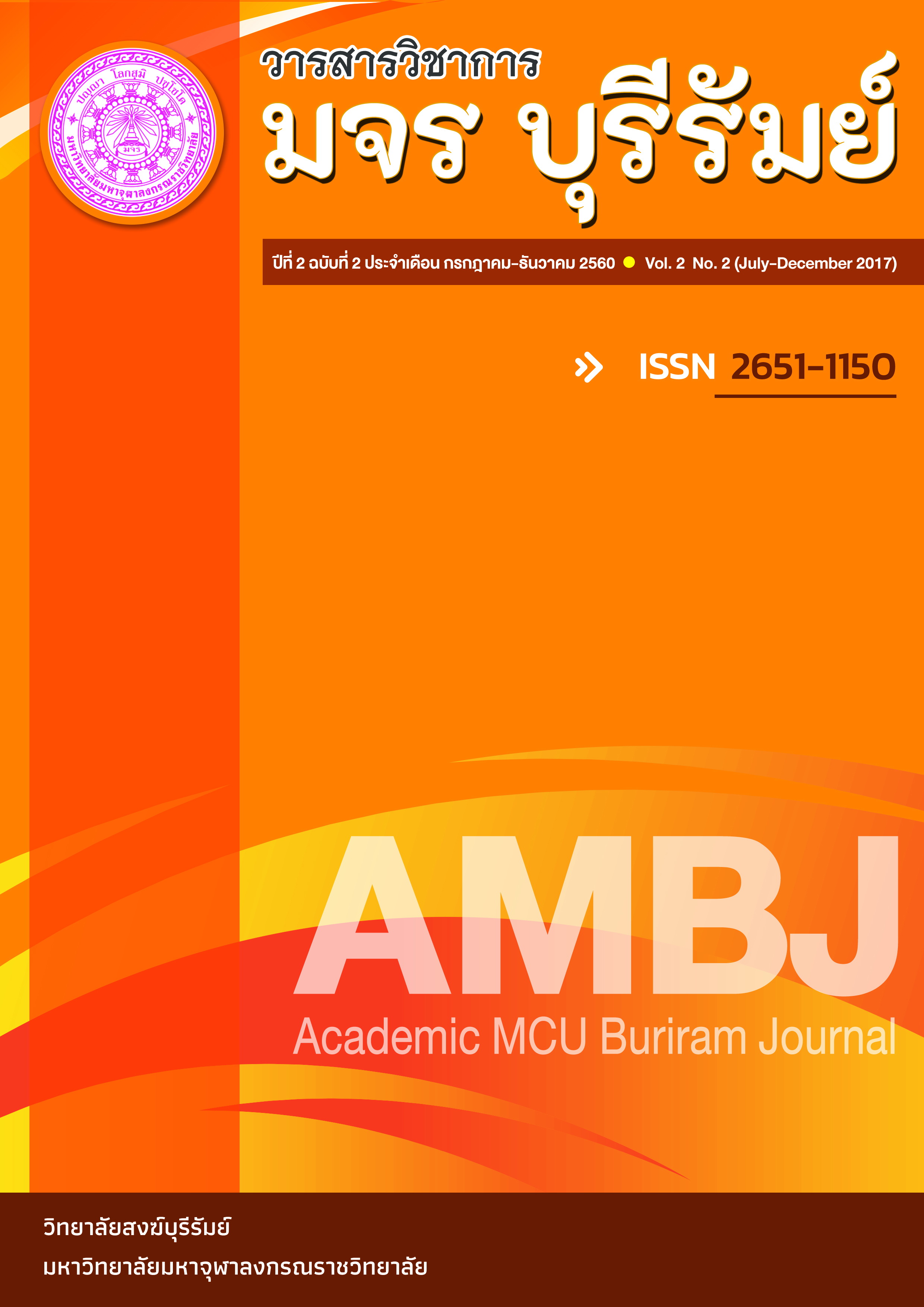Values and Wisdoms of the Boon Klang Ban Tradition of Lao-Vieng Ethnic Group in Phanat Nikhom District, Chonburi Province
Keywords:
Values and Wisdoms, Boon Klang Ban Tradition, Lao-Vieng Ethnic GroupAbstract
The objectives of this qualitative research were: 1) to study ways of life of Lao-Vieng ethnic group in Phanat Nikhom district, Chonburi province; 2) to study values and wisdoms of the Boon Klang Baan tradition of Lao-Vieng ethnic group in Phanat Nikhom district, Chonburi province, Thailand; and 3) to study guidelines for a conservation of Boon Klang Baan tradition. Data were collected through non-participatory observations, participatory observations, and in-depth interviews with community leaders and local philosophers who are the Lao-Vieng ethnic people. The collected data were triangulated for its reliability. Further, a focused-group discussion also arranged for guidelines of a conservation of Boon Klang Baan tradition.
The study found that:
Originally, the Lao-Vieng ethnic group was settled at Vientiane in Lao PDR. After that, there was the immigration of Lao-Vieng ethnic people to settle at Phanat Nikhom district in Chonburi province, Thailand. The main reason of immigration was to find a suitable place for their living. According to the immigration, the Lao-Vieng’s body of knowledge (e.g. ways of living, local wisdoms, traditions, and cultures) was also taken to apply for a daily living. One of the most valuable culture of Lao-Vieng is the Boon Klang Baan tradition.
The Boon Klang Baan tradition is valuable for a living of Lao-Vieng ethnic people in various ways. For example, it is the tradition representing the respect and coexistence of people in a society, the transmission of tradition and activities in forms of a show, a competition, or a contest, and the ways of life’s presentation through a procession (e.g. a basketry procession and a traditional dressing procession) and a local trade show. The Boon Klang Bann tradition is the wisdom for a daily living of Lao-Vieng ethnic people that leads to a community’s unity. It is also the tradition of commemoration of the ancestor’s spirit for a protection of one family. Further, the Boon Klang Baan tradition also helps to increase a development in terms of society, economy, and politics. As a result, it is important to study about guidelines for a conservation of Boon Klang Baan tradition.
According to the study, guidelines for a conservation of Boon Klang Baan tradition are proposed as the followings.
Family’s values instilling – this could be able to start from parents by being a good model for children and teaching children to be a good one in society. Additionally, children should be supported to participate the Boon Klang Baan tradition or in other forms to present the ways of life of Lao-Vieng ethnic group (e.g. dancing, singing contest, parading, basketry competition, sport competition, and etc.).(2) Providing a local curriculum relating to Boon Klang Baan tradition – this should be done to instill, accumulate, and promote the knowledge about Boon Klang Baan tradition through academic institutes and a cooperation of government sectors.(3) Supporting activities that promote the Boon Klang Baan tradition –this should be performed to attract visitors under a cooperation with the Tourism Authority of Thailand. (4) Activities to promote the Boon Klang Baan tradition must be done continuously together with the economic development and promotion (e.g. a local trade show or a traditional performance). (5) The public relations about Boon Klang Bann and a ceremony to give a commemorative certificate to people who benefit a society should be provided. For example, a ceremony to give a commemorative certificate to a family or a government sector that participates the Boon Klang Baan tradition outstandingly.
Downloads
Published
How to Cite
Issue
Section
License
ทัศนะและความคิดเห็นที่ปรากฏในบทความวารสารฉบับนี้ถือเป็นความรับผิดชอบของผู้เขียนบทความนั้น ไม่ถือเป็นทัศนะและความรับผิดชอบของบรรณาธิการ





